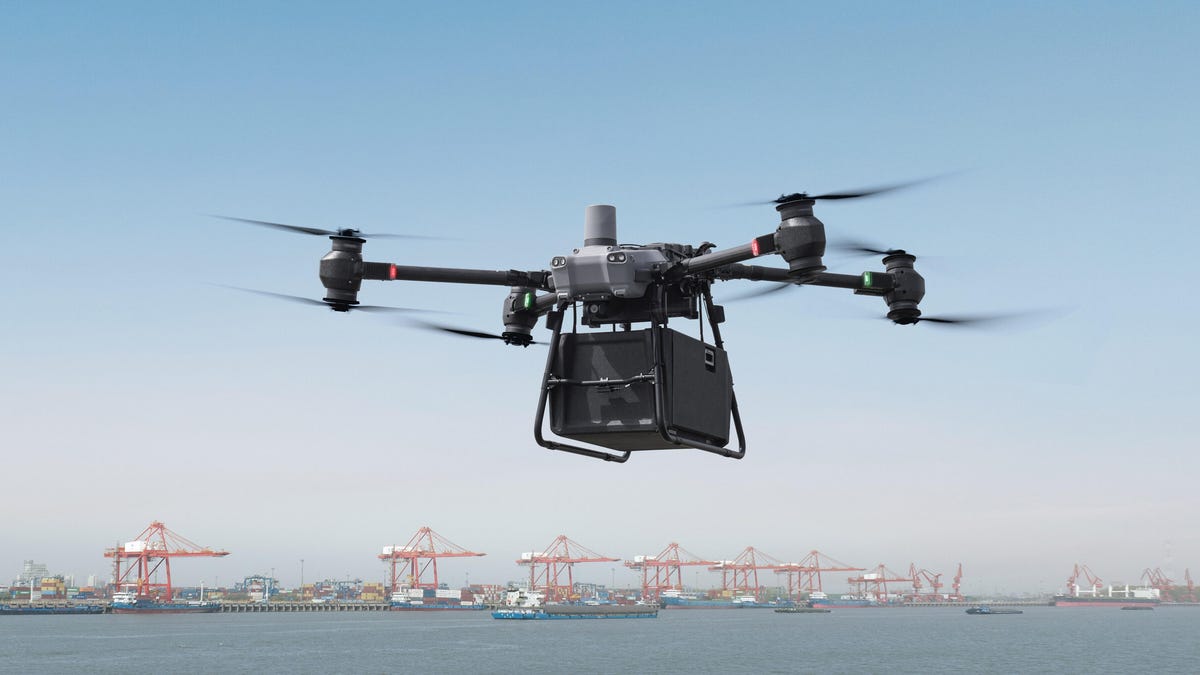
DJI’s Flycart 30 drone can carry up to 66 pounds.
DJI, the top maker of drones used for taking videos and photos, is getting into the package-hauling business. Its new Flycart 30 has a hefty 66-pound (30-kilogram) payload capacity.
The Chinese company announced the new model Wednesday in conjunction with CES 2024. The drone is available globally for about $42,000, a price that includes six battery packs and an extra remote control, and is due to ship in the first quarter. Early customers are using it in China to deliver solar panels in the mountains, carry tools and supplies to a remote construction site and shuttle goods to boats on the Yangtze River, DJI said.
With that kind of price tag, you probably won’t buy a Flycart 30 to record your extreme sports exploits or survey your real estate. But it is emblematic of drones’ expanding uses. These unmanned aircraft first found a niche as cameras in the sky, but now they’re increasingly used to move goods more efficiently than cars or other traditional modes of transportation.
On Tuesday, Walmart, the largest retailer in the US, announced a major expansion of its drone delivery program in the Dallas-Fort Worth area, a service in partnership with startup Zipline and Alphabet subsidiary Wing. Most dedicated drone delivery services use their own drones, which are designed in house as part of an integrated delivery system and certified by the FAA.
DJI’s Flycart 30 is also FAA-certified. At this stage, it looks more likely to be used by industries for their own logistical needs, but DJI said it’s exploring partnerships with express delivery companies in China.
The Flycart 30 has radar and binocular vision for avoiding obstacles in rain or other difficult weather, an ADS-B receiver to spot radio beacons from traditional aircraft, and a parachute in case of major problems. Its maximum flight speed is 20 meters per second, and it has a range of 10 miles. In an emergency configuration with just one battery, it can carry an 88-pound payload up to 5 miles.
